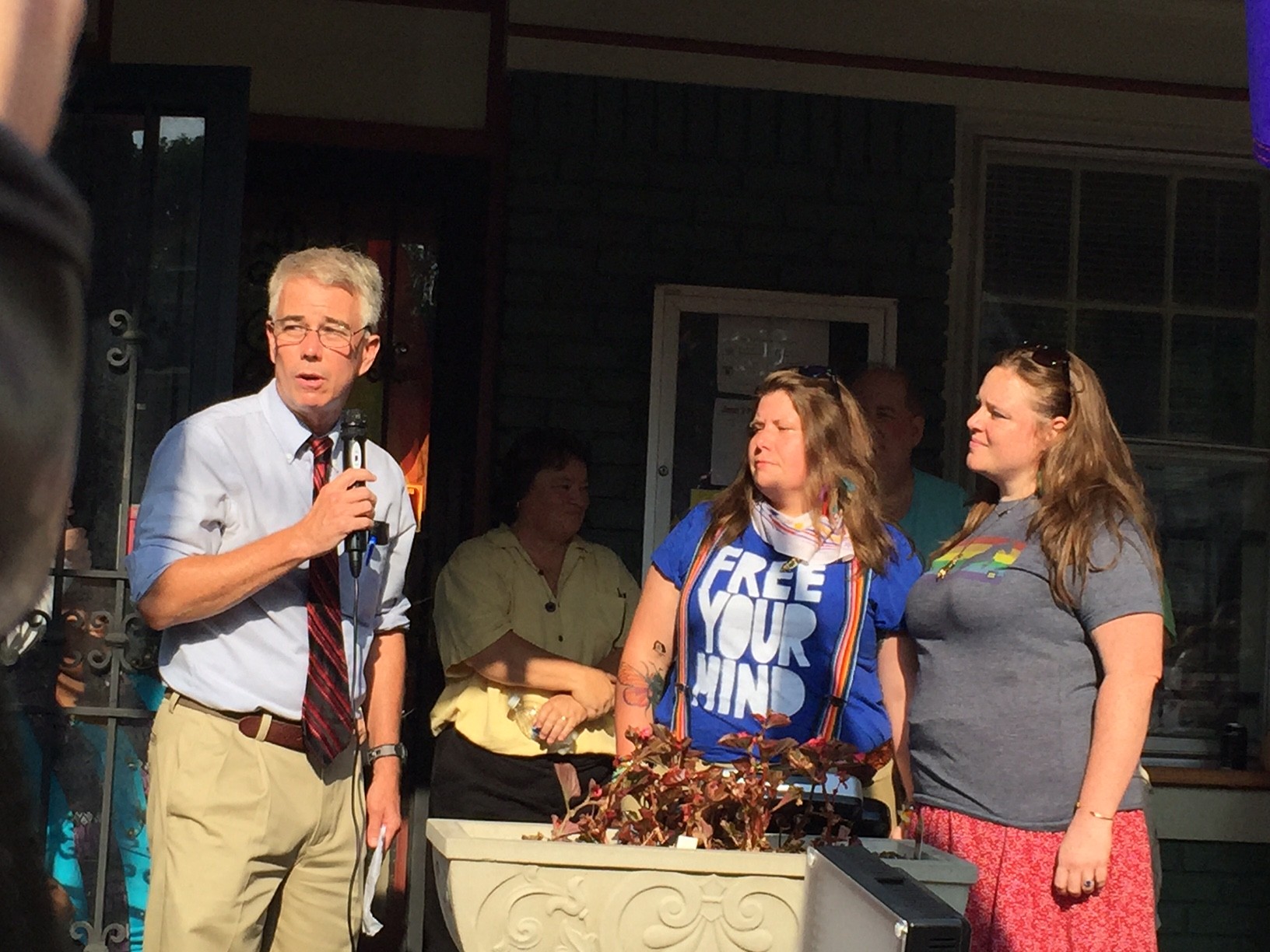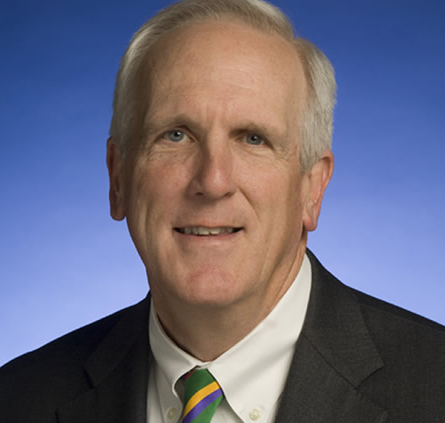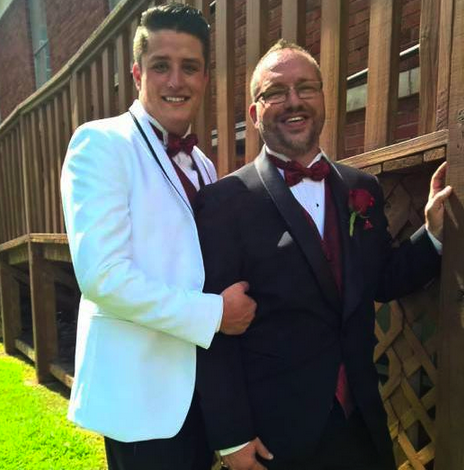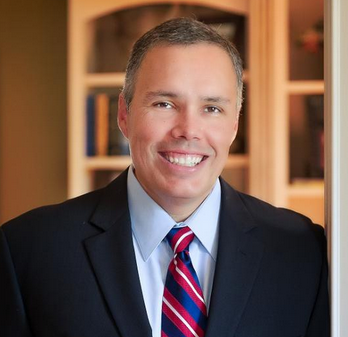A bill that would have allowed officials in Tennessee to refuse to conduct a marriage ceremony based on their “conscience or religious beliefs” did not become law this year, and a trial is set for this summer to decide the fate of marriages performed by ministers who were ordained online.
Tennessee state Rep. Monty Fritts (R-Kingston) sponsored the legislation and called it “a freedom bill” to protect the rights of officiants at wedding ceremonies. During a debate on the House floor last month, Fritts admitted he was not aware of anyone in the state who had been forced to solemnize a wedding. He called that point “irrelevant” and said it was, instead, important to incorporate the right to refuse to perform wedding ceremonies into Tennessee state law.
LGBTQ advocates worried that the bill would officially limit couples’ access to marriage in the state. The bill was written broadly and advocates were concerned that it would allow county clerks or or other government officials to deny marriages to LGBTQ+ couples.
This idea gained national attention in 2015, when Kim Clark, a Kentucky county clerk, refused to issue marriage licenses to same-sex couples, citing personal beliefs. Davis was, ultimately, protected from litigation in her official capacity but a jury is set to decide this summer what damages she may personally owe to a couple, according to WKYT.
Rep. Justin Pearson (D-Memphis) said the legislation, and other bills of a similar nature, are based in hypotheses and take up pointless time and energy in the Tennessee General Assembly.
“… This type of legislation is harmful not only in its practice, but in the messages that it is sending about who has rights in our cities, in our state, and in our country,” Pearson said. “By doing this, it is helping to fuel people who do not care for inclusion, who do not care for love, and people loving whoever it is that they choose to love — that God’s given them the ability to love. … Instead it is trying to support a vision, a perspective of people who would like to see other folks subjugated, dejected, and rejected.”
The bill passed a full House vote after speeding through the committee process in just over a month. However, it was postponed for consideration until next year in its first consideration in the Senate Judiciary Committee.
The bill’s failure may mark a bright spot on the legislative session for LGBTQ+ advocates. But its power is dimmed amid several other bills targeting the LGBTQ+ community, including a bills to ban drag shows and to outlaw gender-affirming care for trans youth.
”The Tennessee House of Representatives continues to be one of the most dangerous legislative chambers in the country for LGBTQ+ people,” Tennessee Equality Project executive director Chris Sanders said in a statement. “They have ignored constituents in their offices, phone calls, and compelling committee testimony. It is time they became the People’s House again.”
Meanwhile, the Universal Life Church (ULC) said a lawsuit that would allow online-ordained ministers to perform marriages in the state is slated for a hearing in August. The original suit was filed in 2019, after Tennessee lawmakers passed a law banning such ministers from performing marriages in the state.
”For the last four years, we’ve contended with delay after delay after delay as the state and local officials we sued have employed legal tactics to absolve themselves of responsibility and prolong our expensive battle,” ULC said in a March blog post.
While the Tennessee law was quickly blocked by a judge, ULC said it’s still not certain its ministers can legally perform weddings. Further, the status of marriages performed by ULC ministers would remain unclear if the group loses its lawsuit.
”Reading all of this, you might be frightened,” ULC said in a blog post last month. “We won’t lie: so are we.”

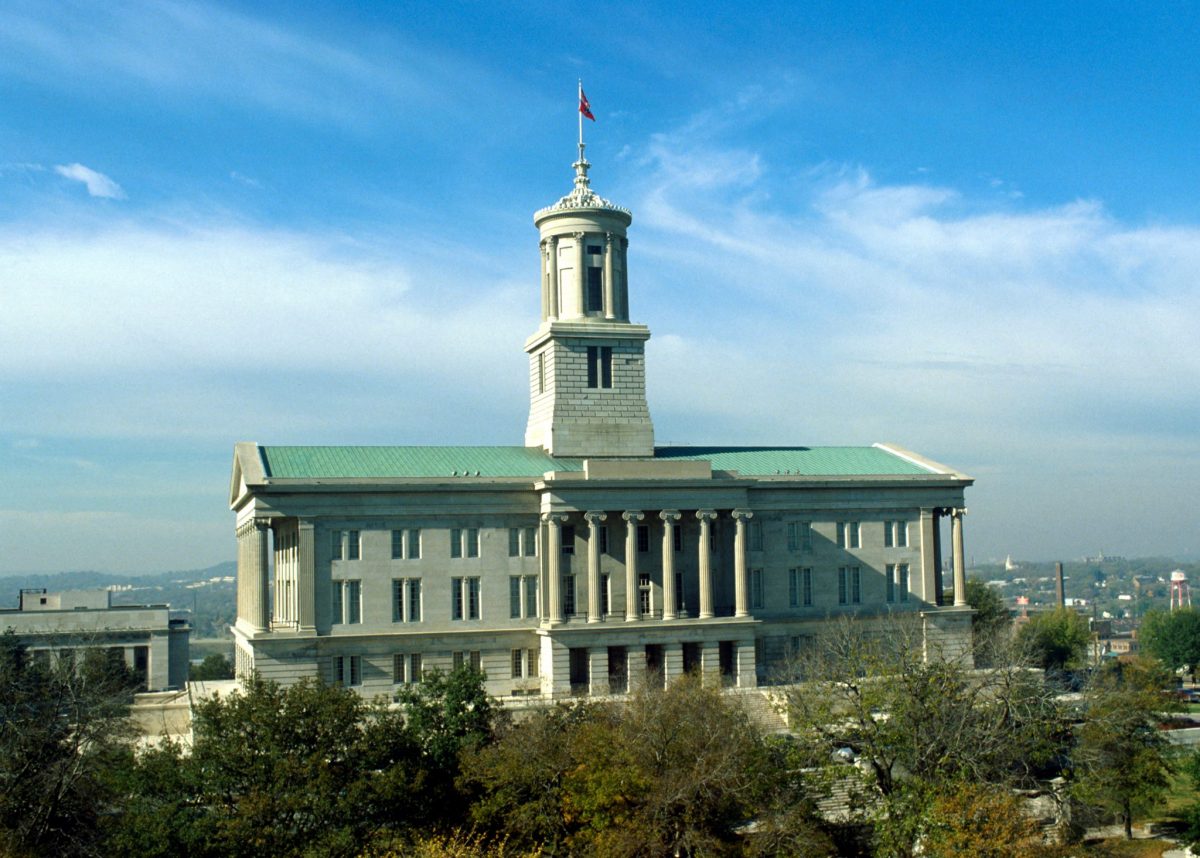


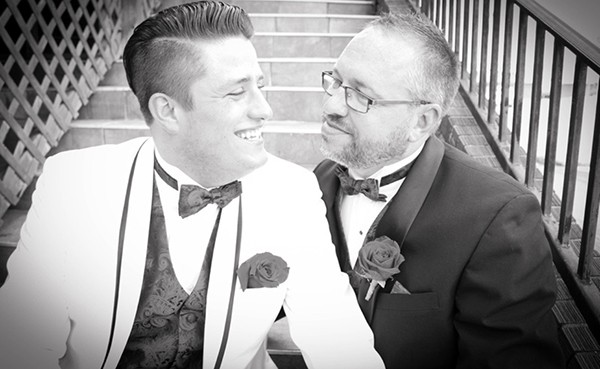
 Greg Cravens
Greg Cravens 